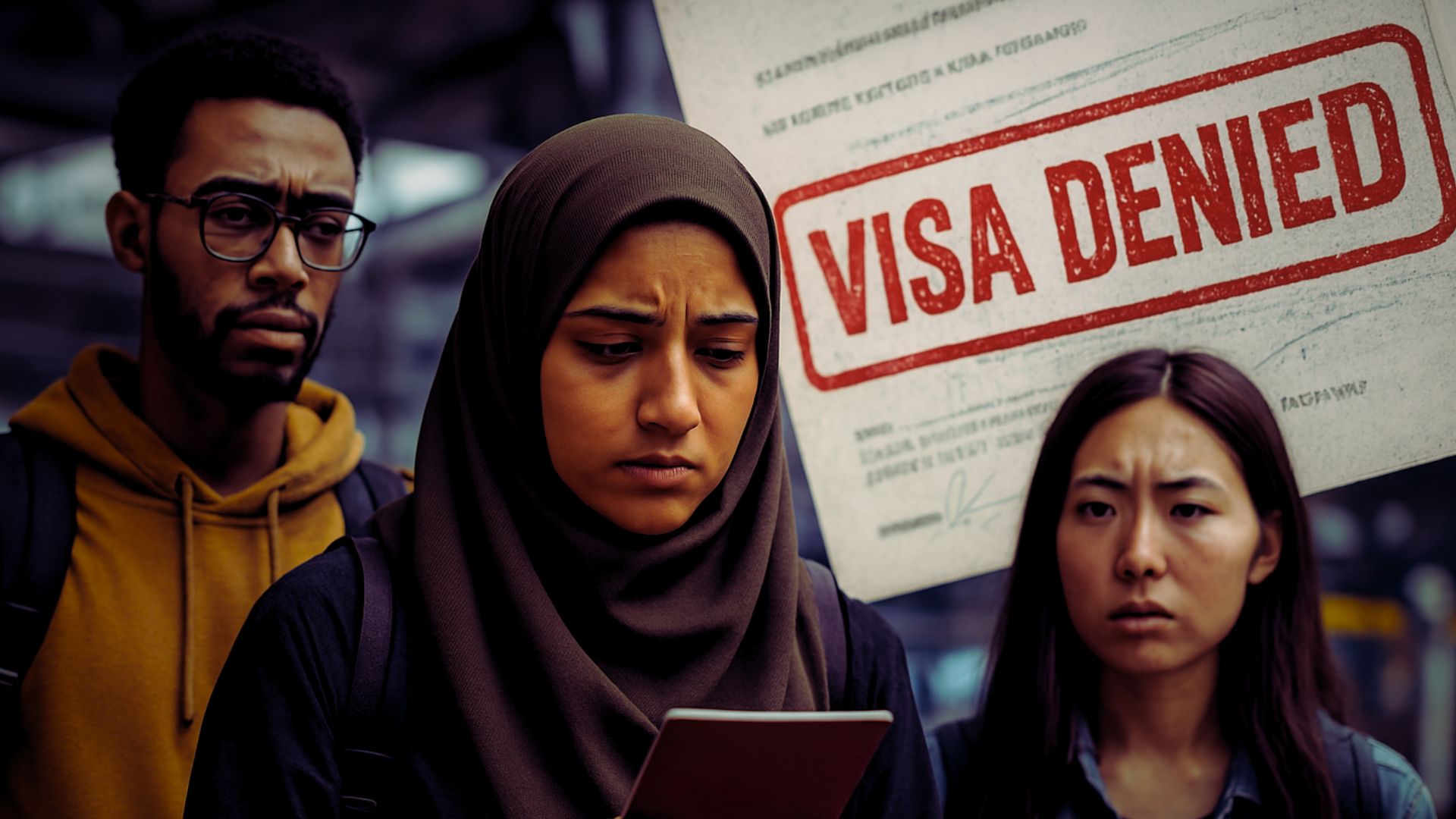By Davey D, Hard Knock Radio April 8 2025
In a recent episode of Hard Knock Radio, civil rights attorney and CAIR Bay Area Executive Director Zahra Billoo joined Davey D to address the alarming revocation of student visas across California and Nevada. The issue appears to target international students connected to pro-Palestinian advocacy.
53 Students Targeted
Billoo shared that 53 students across major universities—including Berkeley, Stanford, UC Irvine, and UNLV—have been impacted. Many of them were in good academic standing and held valid immigration status until their visas were revoked.
She linked the crackdown to comments made by Secretary Alejandro Mayorkas, who earlier stated that up to 300 student visas could be revoked, with more to follow.
Who’s Being Targeted?
Billoo emphasized that most of the students targeted are not white. She noted they often come from countries of interest, and have been engaged in political speech around Palestine. But she cautioned that not all cases can be clearly connected to activism. This is due to a lack of transparency from both universities and the government.
The fear is widespread—even among U.S. citizens. “People are asking how to stay safe,” said Billoo, noting that some are now avoiding protests or even scrubbing their online presence to avoid being targeted.
Is There a Double Standard?
Davey D questioned whether white conservative students—such as those who supported January 6th or armed militia movements—are also being surveilled or deported.
Billoo confirmed: “No, we have not heard of any white or pro-Israel students being targeted.” In fact, she said concerns have been raised about former Israeli Defense Forces members attending U.S. universities without scrutiny.
She credited organizations like Palestine Legal, Muslim Advocates, Asian Law Caucus, and even the ACLU for joining the pushback, though she expressed frustration that broader Democratic support has been tepid.
Canary Mission and Campus Snitching
Billoo also named Canary Mission, Stop Antisemitism, and other groups that have reportedly shared student names with law enforcement and immigration authorities. These groups monitor protests and online content and have helped drive visa revocations.
Despite the risks, legal recourse remains limited. “You can do everything right, and they’ll still come after you,” Billoo warned. “There is no clear system anymore.”
Beyond Palestine: A Pattern of Targeting
Billoo and Davey D drew connections to earlier government crackdowns, from post-9/11 surveillance to the war on drugs and Black Lives Matter protests in Portland, where people were taken off the streets by agents in unmarked vehicles.
“This is not new,” said Davey D. “It’s just targeting a new set of communities.”
Billoo confirmed that South Sudanese students have also recently had visas revoked—not because of their activism, but due to their government’s refusal to accept deportees. This has created an immigration limbo that leaves students vulnerable to detention or expulsion.
Call to Action and Final Thoughts
Billoo urged community members to support legal resources and stay involved, even if not directly impacted. She stressed the need for multiple forms of advocacy, whether in the streets, on the radio, or in the press.
“We need to find our place in the movement,” she said. “Whether you’re writing op-eds or attending school board meetings, just do something.”
Davey D closed the conversation by calling out elected officials, particularly those in California, for their silence. “Where are our local mayors and congressional reps?” he asked. “They should be standing beside Zahra.”


Leave a Reply